Haonan Huang
Polyp-E: Benchmarking the Robustness of Deep Segmentation Models via Polyp Editing
Oct 22, 2024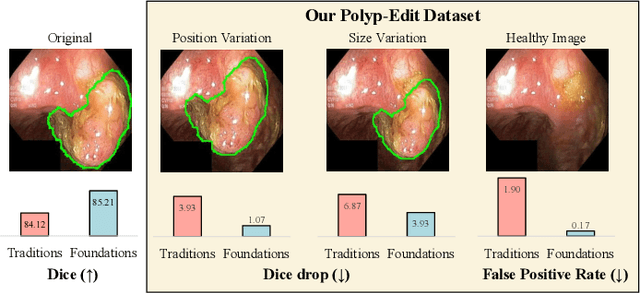

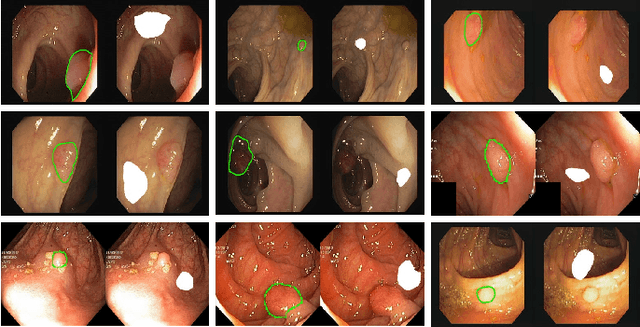
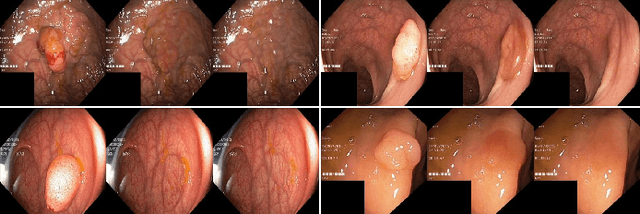
Abstract:Automatic polyp segmentation is helpful to assist clinical diagnosis and treatment. In daily clinical practice, clinicians exhibit robustness in identifying polyps with both location and size variations. It is uncertain if deep segmentation models can achieve comparable robustness in automated colonoscopic analysis. To benchmark the model robustness, we focus on evaluating the robustness of segmentation models on the polyps with various attributes (e.g. location and size) and healthy samples. Based on the Latent Diffusion Model, we perform attribute editing on real polyps and build a new dataset named Polyp-E. Our synthetic dataset boasts exceptional realism, to the extent that clinical experts find it challenging to discern them from real data. We evaluate several existing polyp segmentation models on the proposed benchmark. The results reveal most of the models are highly sensitive to attribute variations. As a novel data augmentation technique, the proposed editing pipeline can improve both in-distribution and out-of-distribution generalization ability. The code and datasets will be released.
Multi-view Data Classification with a Label-driven Auto-weighted Strategy
Jan 03, 2022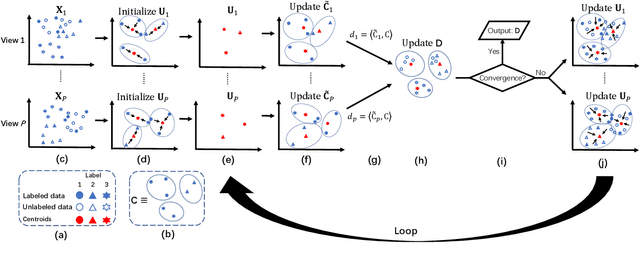
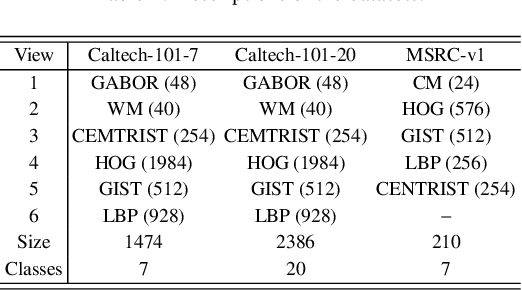
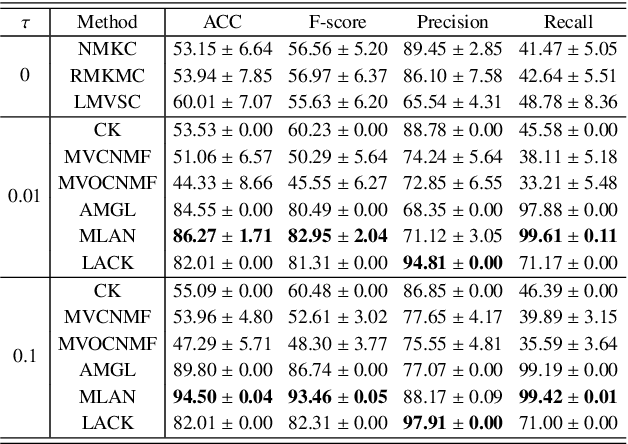
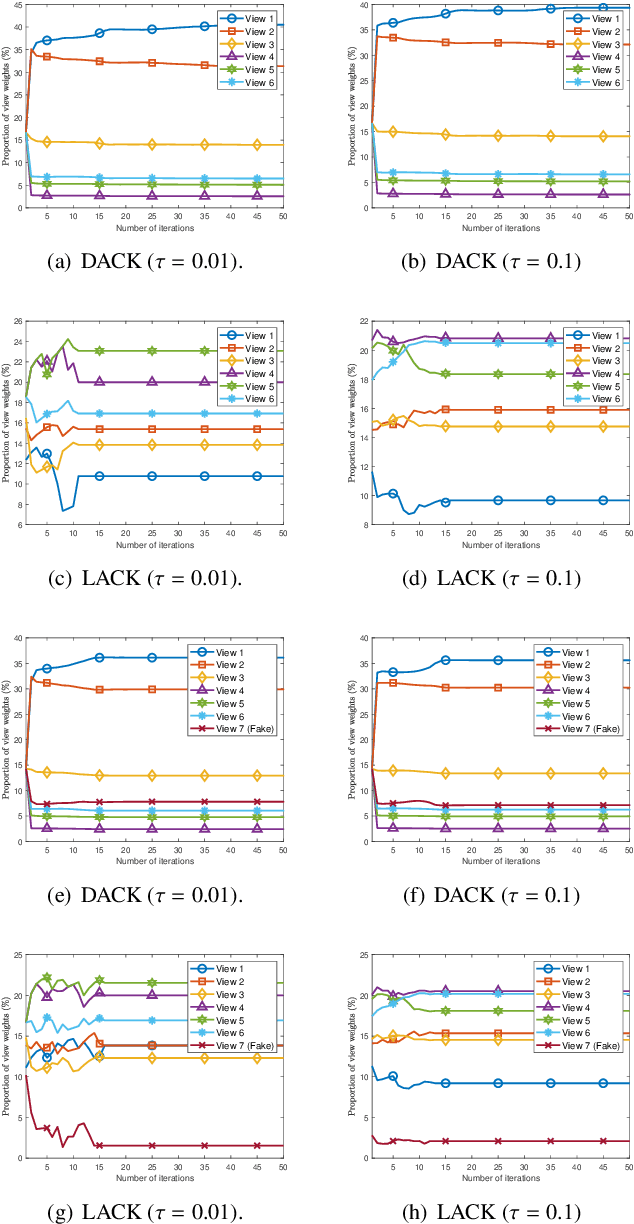
Abstract:Distinguishing the importance of views has proven to be quite helpful for semi-supervised multi-view learning models. However, existing strategies cannot take advantage of semi-supervised information, only distinguishing the importance of views from a data feature perspective, which is often influenced by low-quality views then leading to poor performance. In this paper, by establishing a link between labeled data and the importance of different views, we propose an auto-weighted strategy to evaluate the importance of views from a label perspective to avoid the negative impact of unimportant or low-quality views. Based on this strategy, we propose a transductive semi-supervised auto-weighted multi-view classification model. The initialization of the proposed model can be effectively determined by labeled data, which is practical. The model is decoupled into three small-scale sub-problems that can efficiently be optimized with a local convergence guarantee. The experimental results on classification tasks show that the proposed method achieves optimal or sub-optimal classification accuracy at the lowest computational cost compared to other related methods, and the weight change experiments show that our proposed strategy can distinguish view importance more accurately than other related strategies on multi-view datasets with low-quality views.
Partially Shared Semi-supervised Deep Matrix Factorization with Multi-view Data
Dec 02, 2020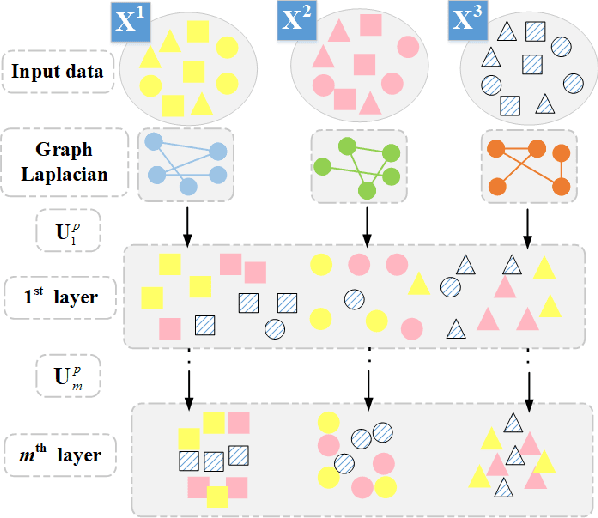
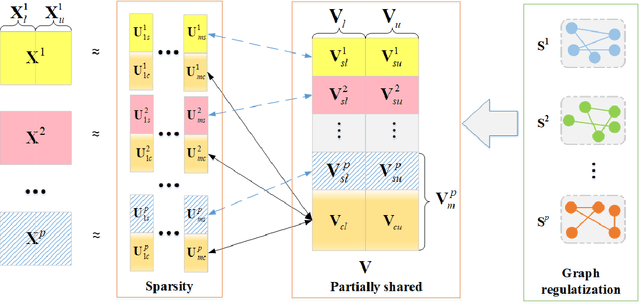
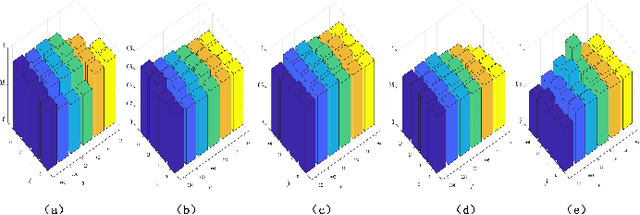
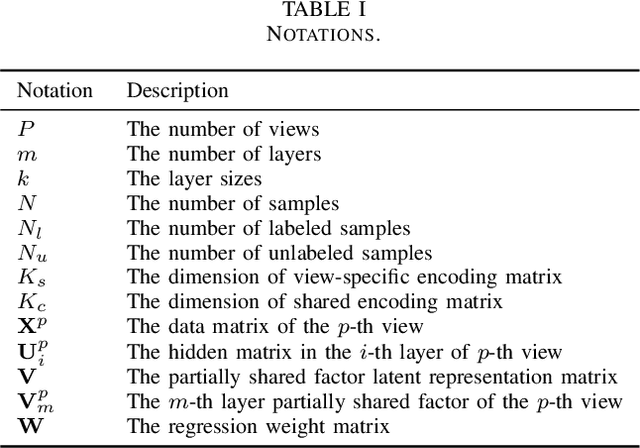
Abstract:Since many real-world data can be described from multiple views, multi-view learning has attracted considerable attention. Various methods have been proposed and successfully applied to multi-view learning, typically based on matrix factorization models. Recently, it is extended to the deep structure to exploit the hierarchical information of multi-view data, but the view-specific features and the label information are seldom considered. To address these concerns, we present a partially shared semi-supervised deep matrix factorization model (PSDMF). By integrating the partially shared deep decomposition structure, graph regularization and the semi-supervised regression model, PSDMF can learn a compact and discriminative representation through eliminating the effects of uncorrelated information. In addition, we develop an efficient iterative updating algorithm for PSDMF. Extensive experiments on five benchmark datasets demonstrate that PSDMF can achieve better performance than the state-of-the-art multi-view learning approaches. The MATLAB source code is available at https://github.com/libertyhhn/PartiallySharedDMF.
 Add to Chrome
Add to Chrome Add to Firefox
Add to Firefox Add to Edge
Add to Edge